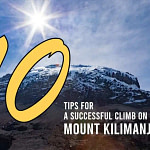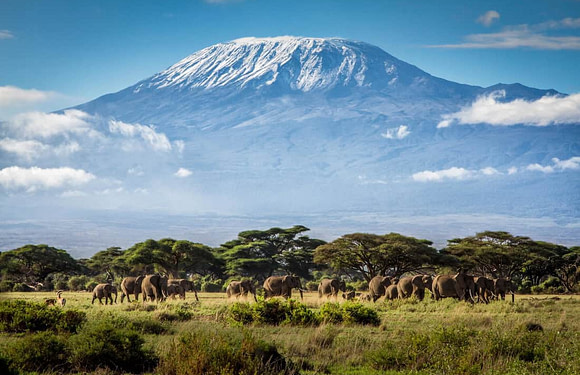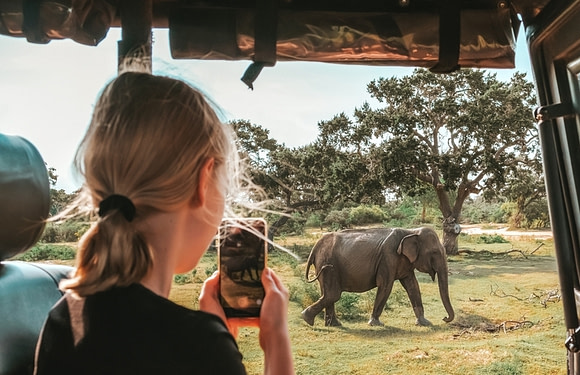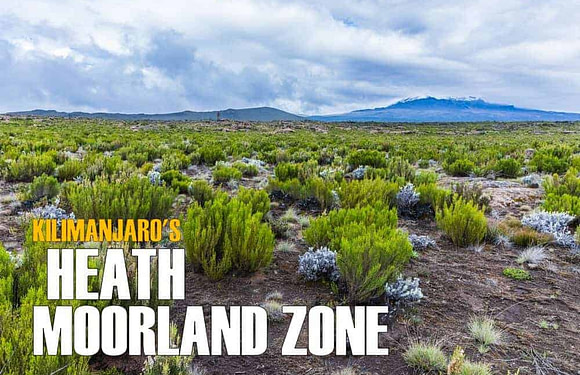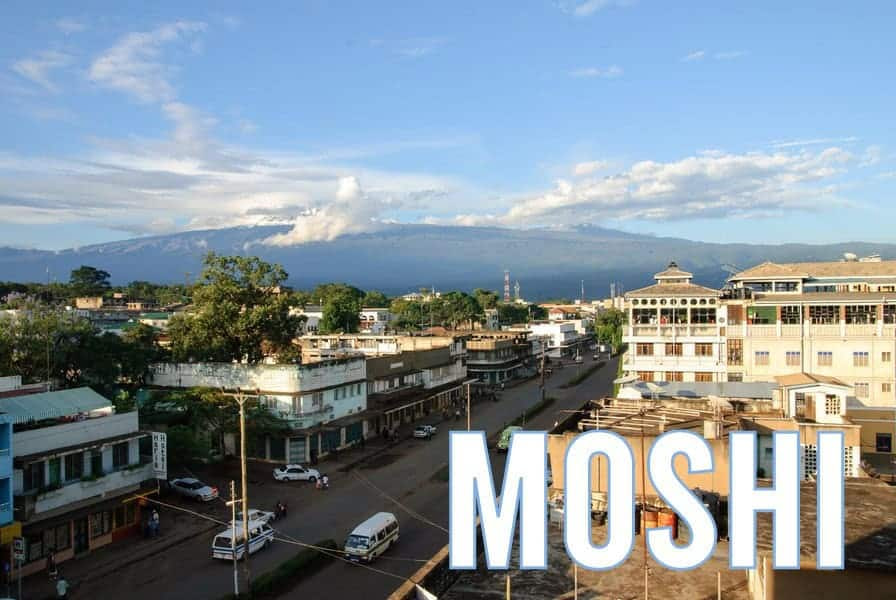
Moshi is a town located in the shadow of Mount Kilimanjaro.
It lies at an altitude of 2,700 feet (831 meters) and provides a direct view of the mountain on clear days. Moshi serves as the primary gateway for climbers aiming to conquer Africa’s highest peak. It’s a town where tourism meets agriculture, with coffee plantations and bustling markets driving much of the local economy.
Demographics and Local Culture
Moshi is home to around 200,000 people, mostly of the Chagga and Pare ethnic groups. The Chagga people, who live around the slopes of Mount Kilimanjaro, have long been associated with agriculture. Their culture and traditions are deeply intertwined with the mountain, which holds both economic and spiritual significance for them.
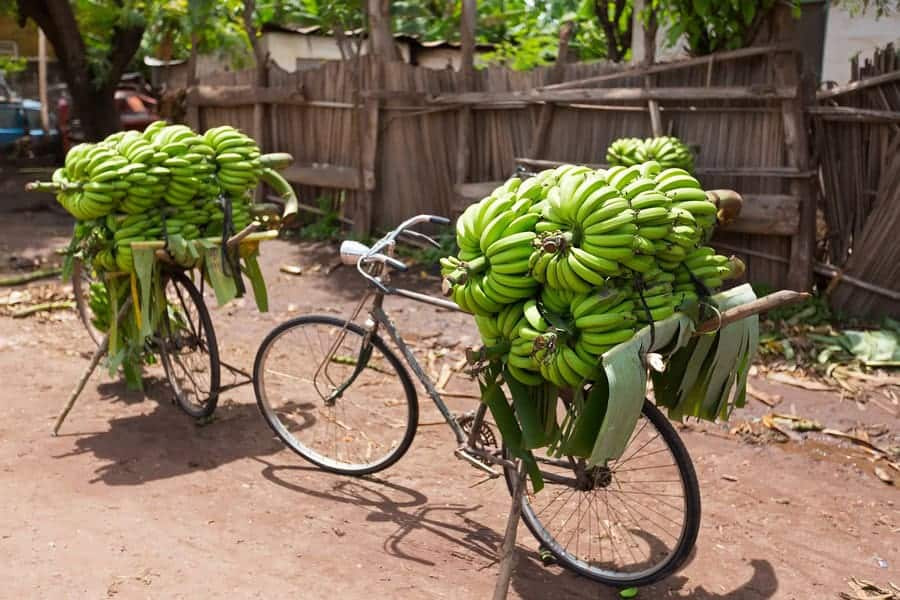
Swahili is the main language spoken here, though many in the tourism industry speak English as well. Tanzanians are known for their friendliness and hospitality, which you’ll experience whether you’re in the town’s markets or interacting with local guides.
Economy
Moshi’s economy revolves around agriculture and tourism. The town is known for its lush coffee plantations, and it’s one of Tanzania’s coffee hubs. Kilimanjaro’s fertile volcanic soil provides ideal conditions for coffee growing, and you’ll find many small farms and cooperatives producing high-quality beans.
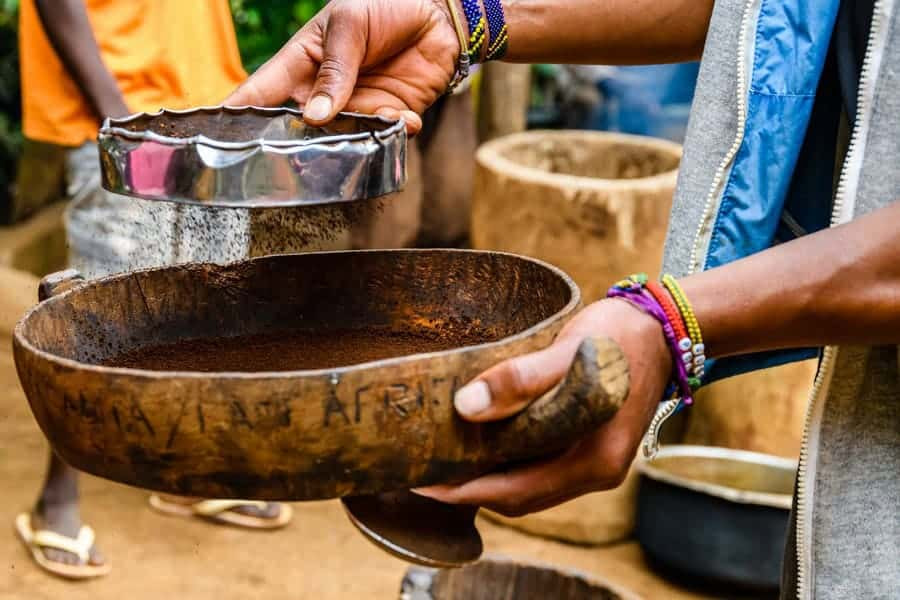
Tourism, however, is the lifeblood of the local economy. The town thrives as a service hub for those about to trek up Kilimanjaro. With thousands of climbers visiting Kilimanjaro annually, Moshi has developed a range of services and businesses catering to their needs—gear rental shops, hotels, restaurants, and Kilimanjaro tour operators are abundant. Moshi is where the journey begins for Ultimate Kilimanjaro clients.
ATMs and currency exchange services are widely available in Moshi. The local currency is the Tanzanian shilling (TZS), though U.S. dollars are widely accepted in tourism-related businesses. We accept U.S. dollars for gear rentals and staff tips. The hotels we use also accept U.S. dollars, so there is no requirement to have Tanzanian shillings.
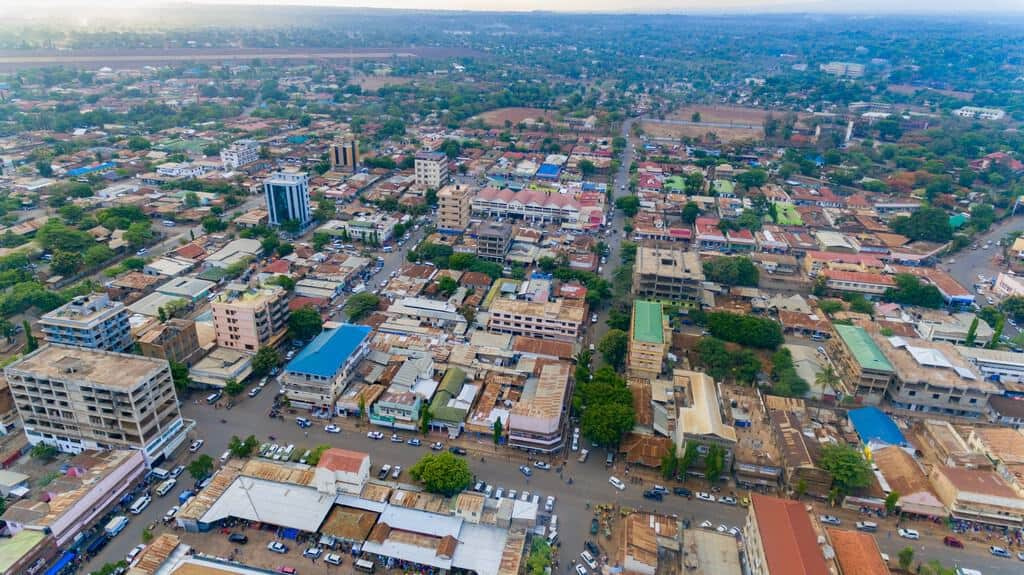
Accommodations
Moshi offers a wide range of accommodation options, from budget hostels to mid-range hotels and luxury lodges. Many climbers choose to stay in Moshi for a day or two before and after their climb to rest and acclimate to the new environment.
Food and Drink
Moshi is home to a variety of restaurants catering to different tastes.
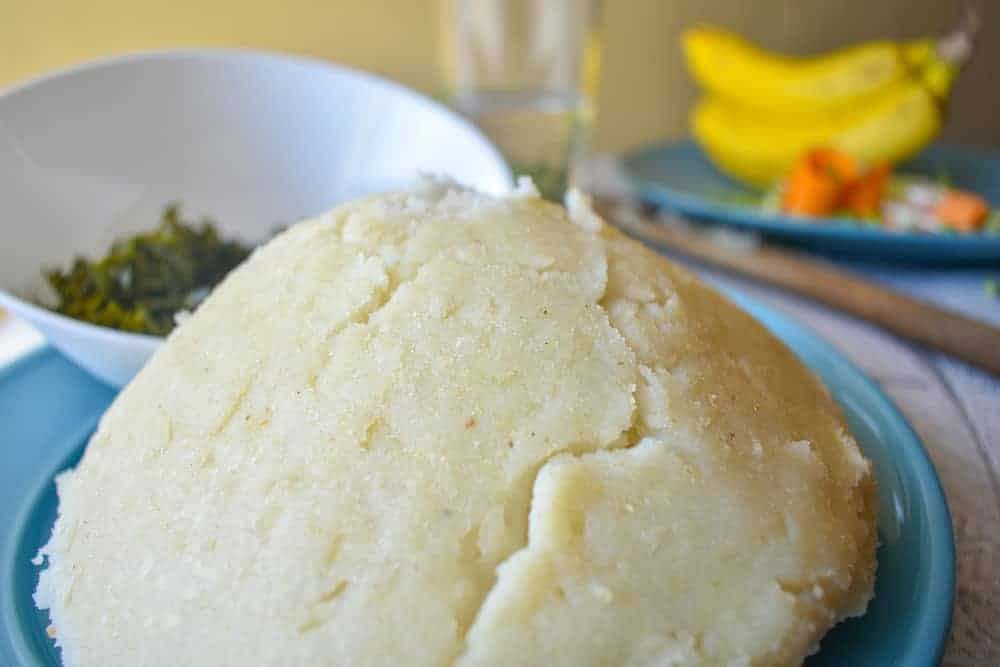
Traditional Tanzanian food includes staples like ugali (a stiff porridge made from maize), grilled meats, and sukuma wiki (a leafy green similar to kale). Moshi’s population includes a significant Indian and Arab influence, leading to a fusion of Indian and Swahili flavors. Dishes like pilau (spiced rice), chapati, samosas, and curries are popular. You’ll also find plenty of places serving continental dishes like burgers, pasta, and sandwiches, as well as more upscale dining options offering grilled steaks and seafood.
Coffee lovers will appreciate Moshi’s rich coffee culture. You can visit local plantations to learn about the coffee-making process and enjoy fresh brews made from beans grown on Kilimanjaro’s slopes. Coffee shops like Union Café, run by the Kilimanjaro Native Cooperative Union (KNCU), serve some of the finest Tanzanian coffee and are a favorite hangout spot for both locals and visitors.
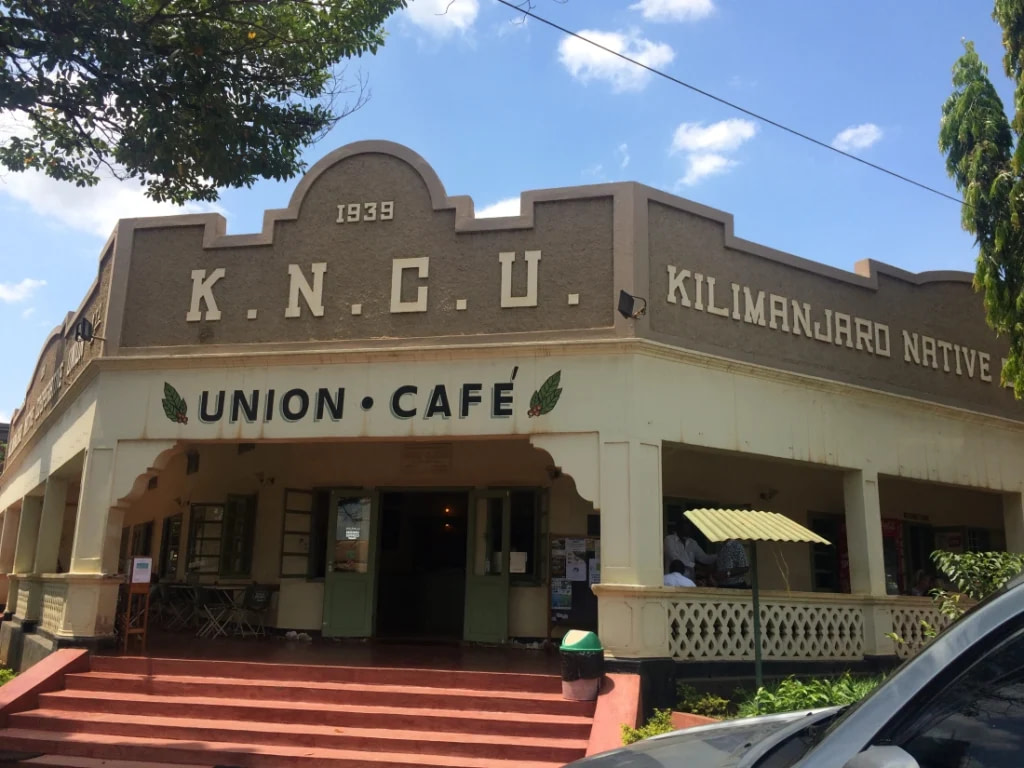
Tanzanian Markets
Tanzanian markets are a vibrant reflection of the country’s rich food culture, offering a wide variety of fresh produce, traditional ingredients, and local specialties. Fresh fruits and vegetables are abundant, with stalls overflowing with bananas, avocados, mangos, and leafy greens. Locally grown staples such as cassava, sweet potatoes, and yams are also widely available. These ingredients form the base of Tanzanian cuisine.
Spices are central to Tanzanian food, especially in coastal areas like Zanzibar. Cumin, cloves, cinnamon, cardamom, and turmeric are common finds. These spices are often used in Swahili cuisine, a flavorful blend of African, Indian, and Arab influences.
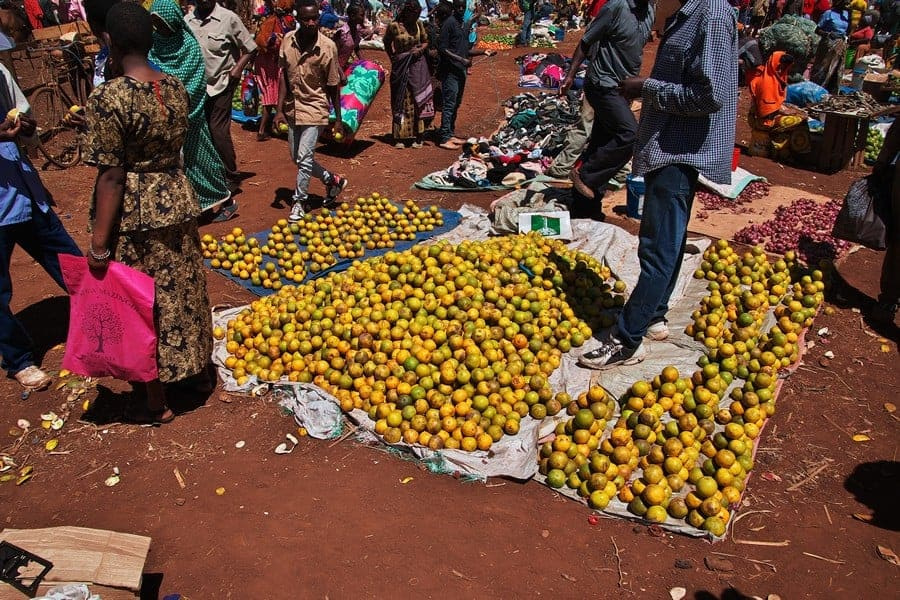
In the markets, you’ll also find plenty of meats and seafood, especially in coastal towns. Butchers sell nyama choma (grilled meat) and fresh fish like tilapia, while dried fish is available for traditional dishes. For a quick snack, markets are dotted with vendors selling street food such as mandazi (fried dough), samosas, and mishkaki (meat skewers).
Grains and legumes like maize, rice, and beans are sold in bulk, alongside local breads like chapati and snacks like vitumbua (rice cakes). These foods are staples for many Tanzanians.
Safety
Moshi is generally a safe town for tourists, though basic precautions are necessary. Petty theft can occur, especially in crowded areas like markets, so keep your belongings secure. Taxis are readily available, and it’s wise to use them after dark rather than walking.
Transportation
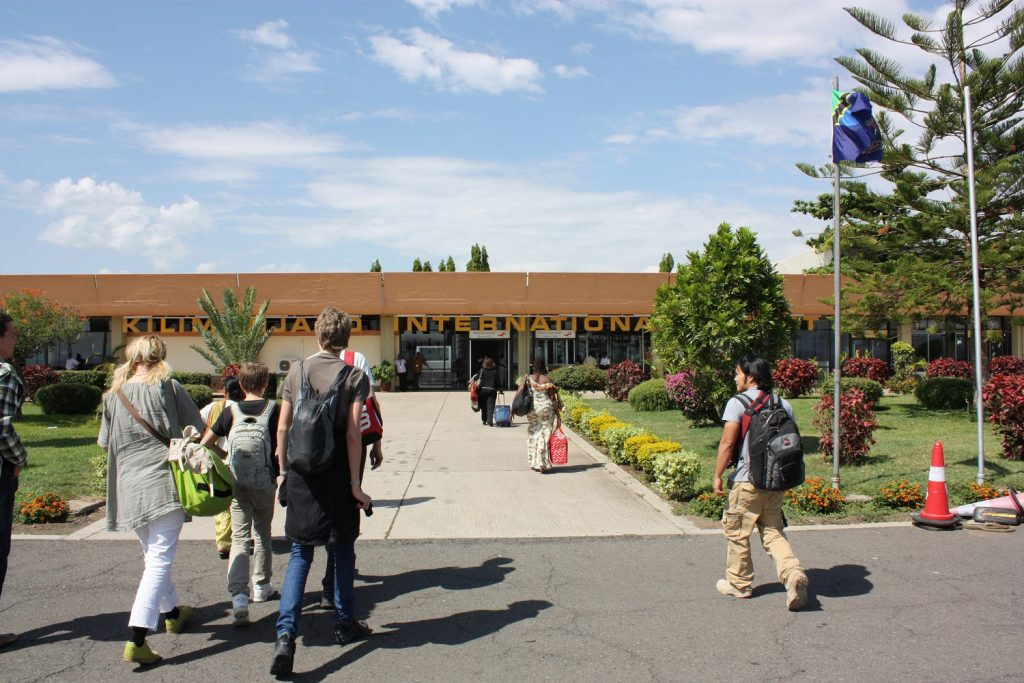
Moshi is accessible by road and air. Kilimanjaro International Airport (JRO) is just 25 miles (40 kilometers) away and services flights from major cities like Nairobi, Dar es Salaam, and Amsterdam. From the airport, taxis and shuttle services can take you directly to Moshi. Our clients can arrange for airport pick up and drop off while booking their trips.
Within the town, taxis and boda bodas (motorbike taxis) are the primary forms of transportation. You can also explore the town on foot, as many of the main areas are easily walkable.
Activities Beyond Kilimanjaro
While Kilimanjaro is the main draw, Moshi offers other attractions. Nearby Materuni Waterfalls are a popular spot for day hikes, and you can also visit local coffee plantations to learn about the production process. The Chagga Live Museum is another cultural highlight, offering insights into the history and customs of the Chagga people. Our local staff can assist in arranging these visits for you on your free days.
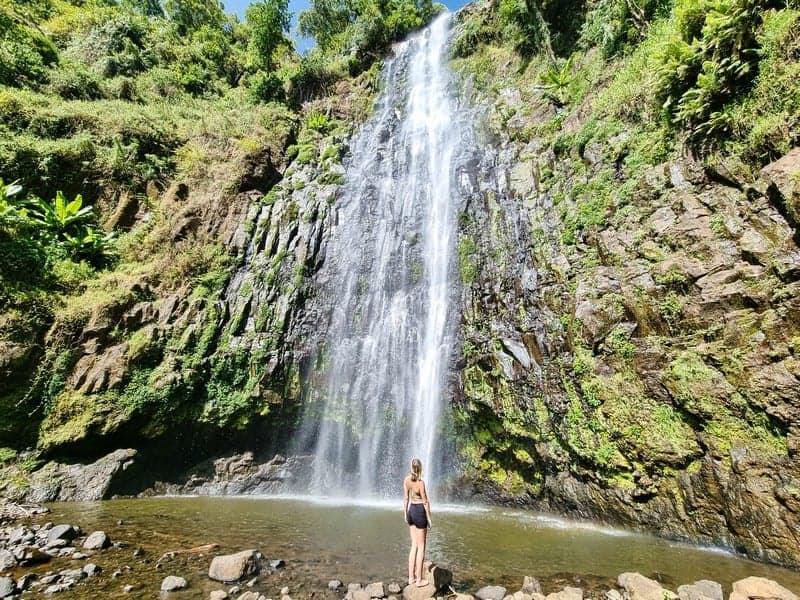
For those with extra time, Moshi also serves as a base for exploring Tanzania’s northern safari circuit, including Serengeti National Park, Ngorongoro Crater, and Tarangire National Park.














































